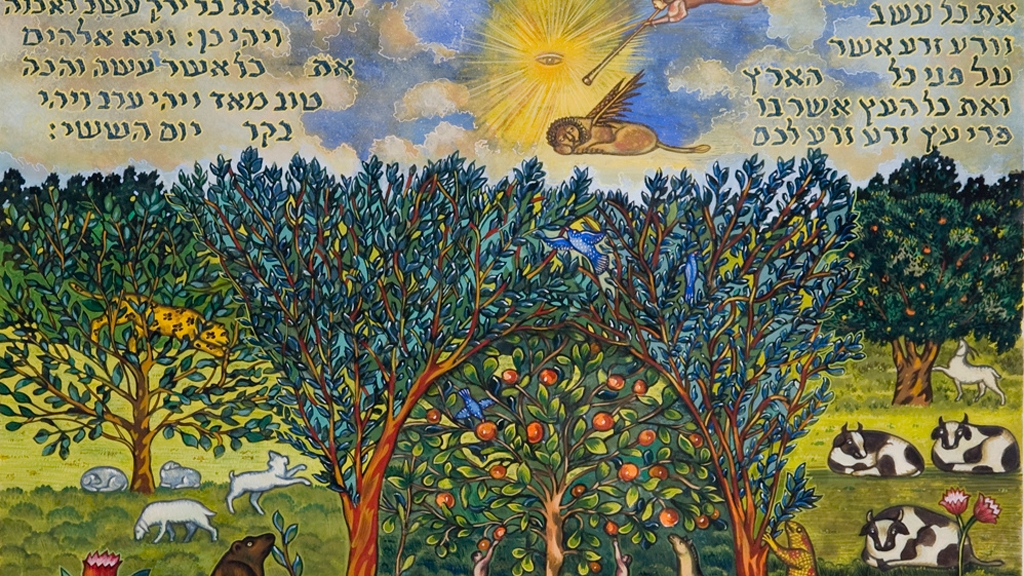He who wants to enter the holiness of the day must first lay down the profanity of clattering commerce, of being yoked to toil. He must go away from the screech of dissonant days, from the nervousness and fury of acquisitiveness and the betrayal in embezzling his own life. He must say farewell to manual work and learn to understand that the world has already been created and will survive without the help of man. Six days a week we wrestle with the world, wringing profit from the earth; on the Sabbath we especially care for the seed of eternity planted in the soul. The world has our hands, but our soul belongs to Someone Else. Six days a week we seek to dominate the world, on the seventh day we try to dominate the self.
When the Romans met the Jews and noticed their strict adherence to the law of abstaining from labor on the Sabbath, their only reaction was contempt. The Sabbath is a sign of Jewish indolence, was the opinion held by Juvenal, Seneca, and others.
In defense of the Sabbath, Philo, the spokesman of the Greek-speaking Jews of Alexandria, says, “On this day we are commanded to abstain from all work, not because the law inculcates slackness. . . . Its object is rather to give man relaxation from continuous and unending toil and by refreshing their bodies, with a regularly calculated system of remissions to send them out renewed to their old activities. For a breathing spell enables not merely ordinary people but athletes also to collect their strength with a stronger force behind them to undertake promptly and patiently each of the tasks set before them.”
Here the Sabbath is represented not in the spirit of the Bible but in the spirit of Aristotle. According to the Stagirite, “we need relaxation, because we cannot work continuously. Relaxation, then, is not an end”; it is “for the sake of activity,” for the sake of gaining strength for new efforts. To the biblical mind, however, labor is the means toward an end, and the Sabbath as a day of rest, as a day of abstaining from toil, is not for the purpose of recovering one’s lost strength and becoming fit for the forthcoming labor. The Sabbath is a day for the sake of life. Man is not a beast of burden, and the Sabbath is not for the purpose of enhancing the efficiency of his work. “Last in creation, first in intention,” the Sabbath is “the end of the creation of heaven and earth.”
With your help, My Jewish Learning can provide endless opportunities for learning, connection and discovery.
The Sabbath is not for the sake of the weekdays; the weekdays are for the sake of Sabbath. It is not an interlude but the climax of living.
Three acts of God denoted the seventh day: He rested, He blessed, and He hallowed the seventh day (Genesis 2:2-3). To the prohibition of labor is, therefore, added the blessing of delight and the accent of sanctity. Not only the hands of man celebrate the day; the tongue and the soul keep the Sabbath. One does not talk on it in the same manner in which one talks on weekdays. Even thinking of business or labor should be avoided.
Labor is a craft, but perfect rest is an art. It is the result of an accord of body, mind, and imagination. To attain a degree of excellence in art, one must accept its discipline, one must adjure slothfulness. The seventh day is a palace in time which we build. It is made of soul, of joy and reticence. In its atmosphere, a discipline is a reminder of adjacency to eternity. Indeed, the splendor of the day is expressed in terms of abstentions, just as the mystery of God is more adequately conveyed via negationis, in the categories of negative theology which claims that we can never say what He is, we can only say what He is not. We often feel how poor the edifice would be were it built exclusively of our rituals and deeds which are so awkward and often so obtrusive. How else express glory in the presence of eternity, if not by the silence of abstaining from noisy acts? These restrictions utter songs to those who know how to stay at a palace with a queen.
Reprinted with permission from The Sabbath: Its Meaning for Modern Man, published by Noonday Press.
Sign up for My Jewish Learning’s RECHARGE, a weekly email with a collection of Shabbat readings and more to enhance your day of rest experience.



